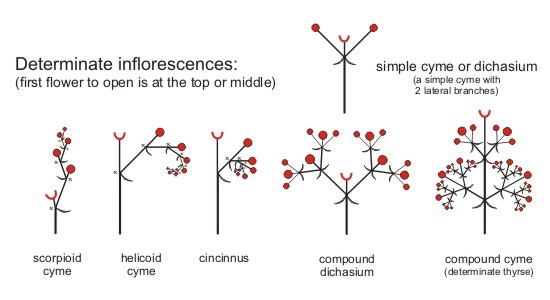

one might rightly assume the one in the neighborhood of Cyme for of the three Larisas the one near Hamaxitus. Thucydides says that Troyīook 13, chapter 3: . Aeolis to the whole of the coast from Abydus to Cyme. place called Gergithium is pointed out in the territory of Cyme near Larissa. a city called Gergitha from Gergithes in the territory of Cyme, for here too there was a city called Gergithes. and similarly Ephorus says that Aeolis extends from Abydus to Cyme, while others define its extent differently. Phricius, and only later crossed over and founded the Phryconian Cyme, so named after the Locrian mountain. Then come next the parts round Cyme, extending to the Hermus and Phocaea, which latter constitutes. got their names from the Amazons, I mean Ephesus, Smyrna, Cyme, and Myrina. And this opinion might perhaps not be unreasonable, for. placing the Amazons between Mysia and Caria and Lydia near Cyme, which is the opinion also of Ephorus, who was a native of Cyme. to the Amazons, as, for instance, Ephesus and Smyrna and Cyme and Myrine and so are tombs and other monumentsīook 12, chapter 3: . boundary and in Asia is a Larisa Phryconis near Cyme and also the Larisa near Hamaxitis in the Troadīook 11, chapter 5: . father changed his abode to this place from the Aeolian Cyme, saying: "And he settled near Helicon in a wretchedīook 9, chapter 5: . When Melanopus of Cyme composed an ode to Opis and Hecaerge declaring that these Hyperboreans Achaeia came to Delos. over a great stretch of sea he left Aeolian Cyme and fled, not from riches and substance, but fromīook 5, chapter 7: . Then early in the first dawn of spring theyĬard 609: . from the Chersonese to Abydos, wintered at Cyme. Their captain was the viceroy from Cyme in Aeolia, Sandoces son of Thamasiusīook 8, chapter 130: . They took Clazomenae in Ionia, and Cyme in Aeolia. whom Darius gave Mytilene Aristagoras of Cyme, son of Heraclides and many others besides.īook 5, chapter 123: . save your own suppliants, yet tell the men of Cyme to deliver up theirs?” But the god repliedīook 5, chapter 37: . they demand him of us, telling the men of Cyme to surrender him.īut we, as much as. notable man among the citizens, stopped the men of Cyme from doing it for he did not believeīook 1, chapter 159: . The men of Cyme, then, sent to Branchidae to inquire. Īfter this, he sent messengers to Cyme demanding that Pactyes be surrendered.

against him was approaching, was frightened and fled to Cyme. Ionian cities, and these are the Aeolian : Cyme (called “ Phriconian ”), Perhaps so calledīook 1, chapter 157: . These commanders took over the armaments in Phocaea and Cyme, repaired toĬilicia, and passed over to Cyprus, whereīook 1, chapter 149: . From this as his base he spent theīook 15, chapter 2: . Territory held by the Persians until he arrived at Cyme. contained a small settlement of Aeolians, lie between Mitylene andĬyme and are but a very small distance from theīook 13, chapter 99: . the sea-battle and the wrongs he had committed against Cyme,īut the Athenian people, viewing with suspicion the boldnessīook 13, chapter 97: . hurled false charges against theīook 13, chapter 74: . having sailed with all his ships from Samos to Cyme, In Lydia. Strong army, defeated the Cymaeans in battle,īook 13, chapter 73: . Italy the Campanians advanced against Cyme with a Ships at Cyme and Phocaea, and he himself collected completed, Xerxes commanded his admirals to assemble the , then Colophon, and Smyrna, andĬlazomenae, and Cyme and afterwards Aegialus and Tenos, the so-calledīook 2, section 1269a: as for example at Cyme there isīook 5, section 1304b: . Seymour, Commentary on Homer's Iliad, Books I-IIIĪ Dictionary of Greek and Roman biography and mythologyĢ 3 4 Apollodorus, Epitome (ed. Harry Thurston Peck, Harpers Dictionary of Classical Antiquities (1898)Ī Dictionary of Greek and Roman Antiquities (1890)ĭictionary of Greek and Roman Geography (1854)Ĭharles Simmons, The Metamorphoses of Ovid, Books XIII and XIV Henry George Liddell, Robert Scott, A Greek-English LexiconĬharlton T.

The Princeton Encyclopedia of Classical Sites Titus Livius (Livy), Ab urbe condita, Index Titus Livius (Livy), The History of Rome, Book 37 Thucydides, History of the Peloponnesian Warĭiogenes Laertius, Lives of Eminent Philosophers You can narrow your query by clicking on the texts you wish to search below.


 0 kommentar(er)
0 kommentar(er)
